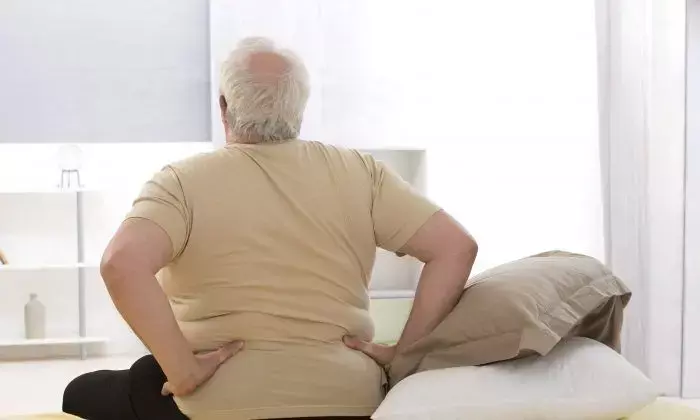- Home
- Medical news & Guidelines
- Anesthesiology
- Cardiology and CTVS
- Critical Care
- Dentistry
- Dermatology
- Diabetes and Endocrinology
- ENT
- Gastroenterology
- Medicine
- Nephrology
- Neurology
- Obstretics-Gynaecology
- Oncology
- Ophthalmology
- Orthopaedics
- Pediatrics-Neonatology
- Psychiatry
- Pulmonology
- Radiology
- Surgery
- Urology
- Laboratory Medicine
- Diet
- Nursing
- Paramedical
- Physiotherapy
- Health news
- Fact Check
- Bone Health Fact Check
- Brain Health Fact Check
- Cancer Related Fact Check
- Child Care Fact Check
- Dental and oral health fact check
- Diabetes and metabolic health fact check
- Diet and Nutrition Fact Check
- Eye and ENT Care Fact Check
- Fitness fact check
- Gut health fact check
- Heart health fact check
- Kidney health fact check
- Medical education fact check
- Men's health fact check
- Respiratory fact check
- Skin and hair care fact check
- Vaccine and Immunization fact check
- Women's health fact check
- AYUSH
- State News
- Andaman and Nicobar Islands
- Andhra Pradesh
- Arunachal Pradesh
- Assam
- Bihar
- Chandigarh
- Chattisgarh
- Dadra and Nagar Haveli
- Daman and Diu
- Delhi
- Goa
- Gujarat
- Haryana
- Himachal Pradesh
- Jammu & Kashmir
- Jharkhand
- Karnataka
- Kerala
- Ladakh
- Lakshadweep
- Madhya Pradesh
- Maharashtra
- Manipur
- Meghalaya
- Mizoram
- Nagaland
- Odisha
- Puducherry
- Punjab
- Rajasthan
- Sikkim
- Tamil Nadu
- Telangana
- Tripura
- Uttar Pradesh
- Uttrakhand
- West Bengal
- Medical Education
- Industry
Transcutaneous Electrical Nerve Stimulation Effective in Reducing Fibromyalgia Pain

A recent study published in The Journal of Pain found that Transcutaneous Electrical Nerve Stimulation (TENS) reduce pain effectively in individuals with fibromyalgia (FM). This Fibromyalgia Activity Study with TENS trial examined the impact of TENS on pressure pain thresholds (PPT) and conditioned pain modulation (CPM) in FM patients.
The trial assigned individuals with FM randomly to three groups, a active TENS group, a placebo TENS group and a control group with no TENS treatment over a 4-week period. Among the total 238 females who completed the study, 76 participants received active TENS, 68 participants received placebo TENS, and 94 participants had no TENS treatment.
After the initial 4-week period, the active TENS group continued with active treatment for an additional 4 weeks making a total of 8 weeks. The placebo and no TENS groups transitioned to receive 4 weeks of active TENS (delayed TENS, n = 161).
The assessment included various pain measures such as resting pain, movement-evoked pain (MEP), pressure pain thresholds (PPT), and conditioned pain modulation (CPM) before and after the TENS treatments. No significant changes in PPT or CPM were observed among these groups after the initial 4 week period.
Individuals who reported clinically relevant improvements (≥30% decrease) in MEP demonstrated significant increases in PPT (P < .001) but not in CPM when compared to MEP non-responders. This study highlights the clinical relevance of PPT for understanding pain mechanisms, specially in individuals who show improvement in MEP. Also, CPM was not observed to be a reliable indicator of treatment response in MEP responders. These findings open opportunities to understand the underlying mechanisms that contribute to fibromyalgia pain and emphasize the potential of TENS as an effective treatment.
Reference:
Berardi, G., Dailey, D. L., Chimenti, R., Merriwether, E., Vance, C. G. T., Rakel, B. A., Crofford, L. J., & Sluka, K. A. (2023). Influence of Transcutaneous Electrical Nerve Stimulation (TENS) on Pressure Pain Thresholds and Conditioned Pain Modulation in a Randomized Controlled Trial in Women With Fibromyalgia. In The Journal of Pain. Elsevier BV. https://doi.org/10.1016/j.jpain.2023.12.009
Neuroscience Masters graduate
Jacinthlyn Sylvia, a Neuroscience Master's graduate from Chennai has worked extensively in deciphering the neurobiology of cognition and motor control in aging. She also has spread-out exposure to Neurosurgery from her Bachelor’s. She is currently involved in active Neuro-Oncology research. She is an upcoming neuroscientist with a fiery passion for writing. Her news cover at Medical Dialogues feature recent discoveries and updates from the healthcare and biomedical research fields. She can be reached at editorial@medicaldialogues.in
Dr Kamal Kant Kohli-MBBS, DTCD- a chest specialist with more than 30 years of practice and a flair for writing clinical articles, Dr Kamal Kant Kohli joined Medical Dialogues as a Chief Editor of Medical News. Besides writing articles, as an editor, he proofreads and verifies all the medical content published on Medical Dialogues including those coming from journals, studies,medical conferences,guidelines etc. Email: drkohli@medicaldialogues.in. Contact no. 011-43720751


